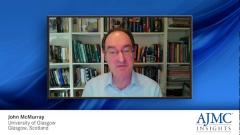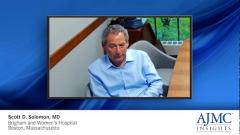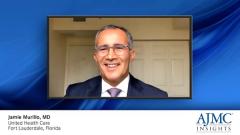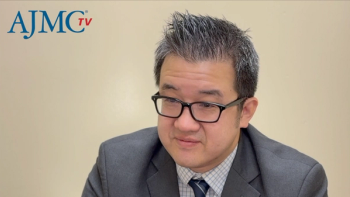
Recent Findings from the PARALLAX Study
An expert in the management of heart failure considers the importance of recent findings from the PARALLAX study.
Episodes in this series

Scott D. Solomon, MD: PARAGON-HF was a large outcomes trial, and there are a number of other smaller studies and more short-term studies that were conducted around the same time. One of these was called PARALLAX, which was a study that was requested by the German payers because they were concerned that the comparator being used in PARAGON-HF, which was valsartan, was not generalizable. They wanted to do a study to look at the comparative benefit of sacubitril/valsartan compared to whatever the patients were previously on. Meaning if they had been on an ACE [angiotensin-converting enzyme] inhibitor, it would be compared to an ACE inhibitor, and if they had been on an ARB [angiotensin 2 receptor blocker], then compared to an ARB. And if they were on nothing, then use nothing as the other arm. About 2500 patients were randomized to sacubitril/valsartan or whatever therapy they were previously on in terms of class. They were given either enalapril, valsartan, or nothing. The primary end point of this trial was a reduction in NT-proBNP [N-terminal pro-b-type natriuretic peptide], with several other end points, including a 6-minute walk, measures of quality of life, and other assessments as well.
PARALLAX showed a significant reduction in NT-proBNP, on a magnitude that was similar to what we saw in the PARAGON-HF and the PARAMOUNT trials, or maybe a bit less than those trials. PARALLAX did not show a benefit in terms of 6-minute walk and did not show a benefit in terms of measures of quality of life, which surprised us a bit because PARAGON-HF showed benefit in terms of quality of life. However, PARALLAX also showed a pretty substantial 40% to 50% reduction in heart failure events after the start of this trial. This wasn't a study that was large enough or designed specifically to look at heart failure events, but when you look at them, you see about a 50% overall reduction in those events, which is consistent with the data that we saw in PARAGON-HF. PARALLAX had some confusing results, but all in all, these data support the results we saw in the PARAGON-HF trial.
Newsletter
Stay ahead of policy, cost, and value—subscribe to AJMC for expert insights at the intersection of clinical care and health economics.











